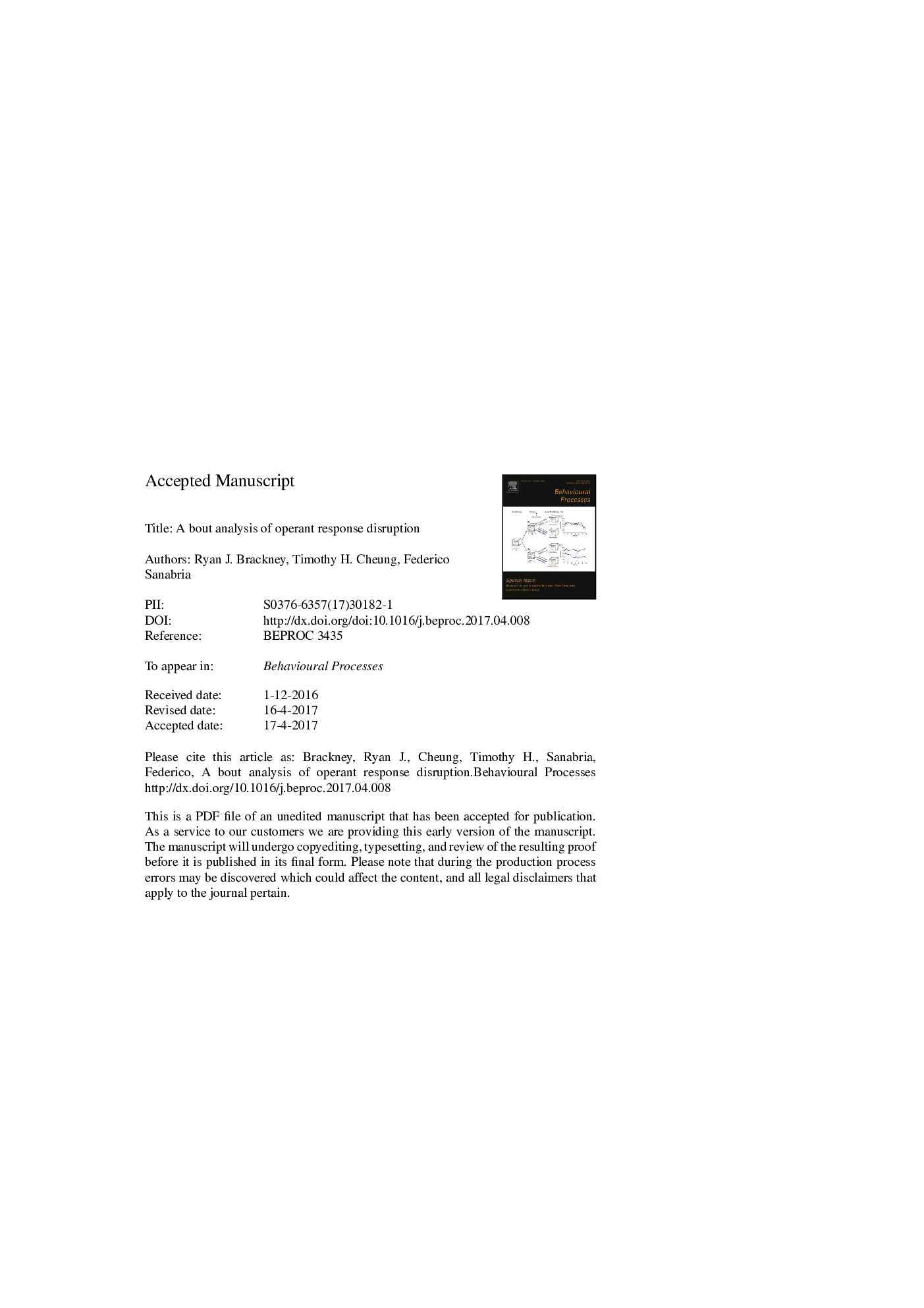| Article ID | Journal | Published Year | Pages | File Type |
|---|---|---|---|---|
| 5539619 | Behavioural Processes | 2017 | 31 Pages |
Abstract
Operant behavior appears to be organized in bouts of responses, whose parameters are differentially sensitive to various manipulations. This study investigated potential differential effects of three forms of operant response disruption-extinction (EXT), non-contingent reinforcement (NCR), and prefeeding (PRE)-on response bouts. In Experiment 1, Wistar Kyoto rats (WKY) were trained on a tandem variable-time (VT) 120Â s fixed-ratio (FR) 5 schedule of reinforcement; after stability was established, their responding was disrupted for three sessions with one of the three disrupters (EXT, NCR, or PRE). In Experiment 2, Long Evans (LE) rats were trained on a tandem VT 240Â s FR 5 to stability, and their responding disrupted with EXT or NCR. In EXT and NCR, response rates declined significantly and progressively over the course of the session, primarily due to a declining bout-initiation rate in EXT, and to fewer responses per bout in NCR. In contrast, a session-wide drop in response rate was observed in PRE, primarily due to a reduction in bout-initiation rate at the start of the session. These findings suggest that each form of disruption differentially impacts dissociable aspects of behavior. Theories of behavioral persistence should account for these functional relations, which appear to be obscured in response rate measures.
Related Topics
Life Sciences
Agricultural and Biological Sciences
Animal Science and Zoology
Authors
Ryan J. Brackney, Timothy H.C. Cheung, Federico Sanabria,
